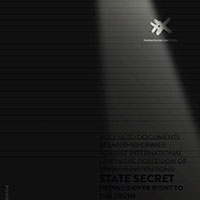Access to documents related to crimes against international law in the possesion of Serbian institutions: State Secret Prevails over Right to the Truth
 Open access to archives which contain documents that can assist in determining the facts about past human rights violations is a key prerequisite for the establishment of transitional justice processes and mechanisms. In societies like the Serbian, which have experienced periods marked by systematic violence, access to information regarding human rights violations is an essential element of the right of victims and society as a whole to know the truth.
Open access to archives which contain documents that can assist in determining the facts about past human rights violations is a key prerequisite for the establishment of transitional justice processes and mechanisms. In societies like the Serbian, which have experienced periods marked by systematic violence, access to information regarding human rights violations is an essential element of the right of victims and society as a whole to know the truth.
Th e right to know the truth about what happened in a period marked by large-scale human rights violations is a human right too, a part of the right to freedom of expression which is guaranteed by the International Covenant on Civil and Political Rights. The Covenant, which is binding upon Serbia and its citizens, states that “[e]veryone shall have the right to freedom of expression; this right shall include freedom to seek, receive and impart information”1[italics added]. It constitutes a basis for the enjoyment of several other human rights and enables public oversight of government authorities’ operations and an effective citizens’ participation in democratic processes.
Despite the fact that Serbia is a state party to the International Covenant on Civil and Political Rights and a sponsor of the Resolution on the Right to the Truth adopted by the UN Human Rights Committee, and contrary to its domestic legal framework that guarantees free access to information of public importance, Serbian institutions systematically obstruct public access to documents and also to the government bodies responsible for prosecuting war crimes.
This report draws on the HLC’s extensive experience in researching crimes and publishing publicly available evidence regarding as yet unpunished crimes, which also includes using information and documents contained in the archives of the Ministry of the Interior (MoI) and the Ministry of Defence (MoD).
Over the last few years, the MoI and MoD have been unlawfully obstructing access to information of public importance essential for shedding light on past events, including the facts relating to crimes and enforced disappearances. As a rule, these two institutions deny access to the information and documents requested by the HLC, especially where the documents concern crimes regarding which there are strong indications that they were committed by police or army officers. In their attempt to keep these documents out of public view, the MoI and MoD use a variety of arguments and procedures which often run contrary to the relevant laws.
The MoI has refused most HLC’s requests, using the unpersuasive rationale that it does not hold the information requested. The MoD, for its part, refuses the requests by invoking data secrecy or personal data provisions. This MoD practice is based upon its arbitrary interpretations of the relevant provisions, and involves non-compliance with the decisions of the Commissioner for Information of Public Importance and Personal Data Protection ordering the MoD to disclose documents and information of public importance.
Th e main aim of this report is to stress the need for providing public access to archives that contain documents relating to crimes and gross human rights violations committed during the wars of the 1990s in the former Yugoslavia which would enable the victims, their families, and society as a whole, to exercise their right to the truth and help to combat impunity.
The report “Access to documents related to crimes against international law in the possesion of Serbian institutions: State Secret Prevails over Right to the Truth” can be downloaded here.






